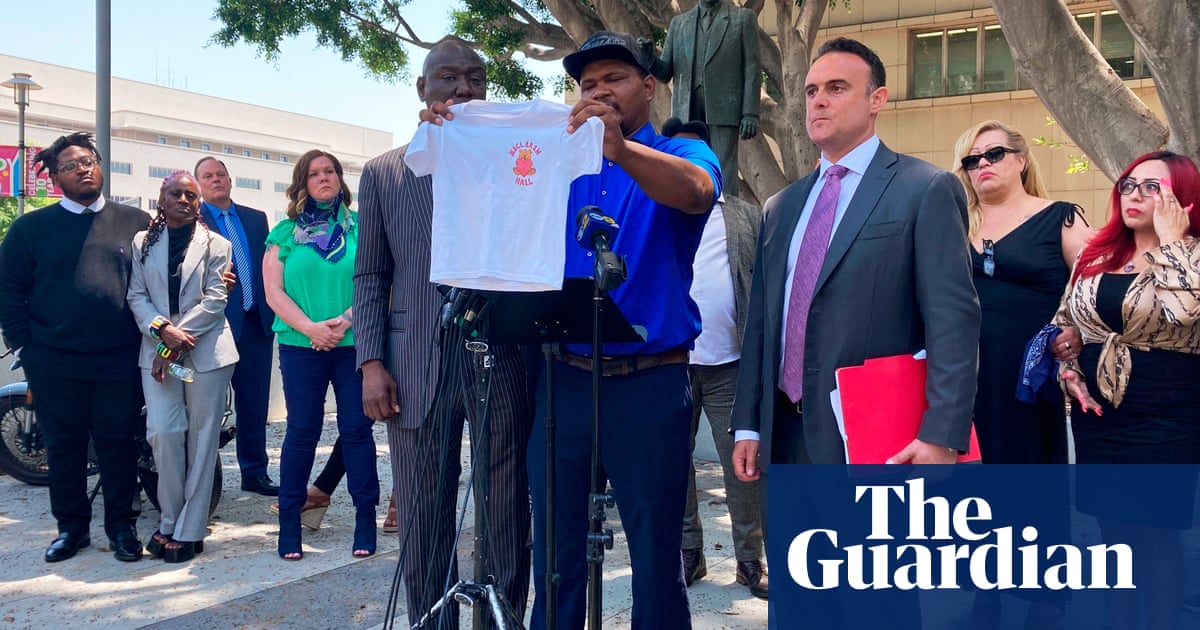“They’re not fussy,” said Martin Curry, describing the far from epicurean appetites of the scurrying rodents that the residents of Birmingham fear could flood the streets of their city.
“Rats all have their own personal tastes but if food is scarce they’ll eat anything,” he said. Curry, who has been called the “rat king” locally, runs MC Environmental Pest Control. He has been on the frontline of stamping out the rodent threat amid a weeks-long bin strike that has caused bins to pile up on Birmingham’s streets.
Business has been booming as a result. “I’m getting a lot more callouts for rats especially,” he said. “It normally drops off at this time of year because the weather’s getting warmer and the rats spend a lot more time outside.”
On a balmy, spring afternoon, Curry gave the Guardian a whistle-stop tour of Birmingham, beginning on the outskirts of the city centre where bin bags and broken furniture were piled on the side of the road.
Pointing to an armchair split in two surrounded by bits of food, Curry said: “This is ideal for them. There’s a food source and it’s easy for them to hide because of the furniture.”

Curry pointed out some telltale signs that rats might be rummaging outside your home. “On outdoor bins you would see teeth marks all around the lids because they’ve been trying to get in,” he said. For inside the home, he said droppings, scratches and footprints or tail marks in dusty areas were warning signs.
Around the outskirts of the city, piles of bin bags were littered on most street corners. The strike has been taking place since 11 March when refuse workers stopped work indefinitely after striking intermittently since January. In one residential area, both sides of the road were shoulder-high in rubbish, with one of the pavements blocked with bin bags stacked 5ft high.
Bin bags towered over a sign warning of a £20,000 fine for dumping. “There’s probably a couple hundred bags of rubbish there. There’s all sorts of household waste, there’s takeaway wrappers, milk bottles, food waste, all sorts really,” said Curry.
He said food waste should be the first thing to clear away. “Even if I put down poison, chances are they’re not going to take it, because they’ve got lots of other tastier options.”
Takeaways are particularly attractive to rats. “There’s doughnuts and chips there, any of us would like that, nevermind the rats,” said Curry, pointing at the leftovers of somebody’s dinner. “They eat all the crumbs. They’ll even eat the grease off the pizza boxes. They’re not fussy at all.”
While headlines have suggested that the entire city is affected, there are some exceptions. The streets of Edgbaston, an affluent area of Birmingham, are sparkling clean.

Edgbaston, which is lined with lush, winding roads and big, well-kept homes, is perched atop a hill overlooking the city.
“This is one of the more wealthy parts of Birmingham,” said Curry. “There’s no extra waste out here. I’m guessing it’s because these people have got transport and they’re taking their own waste to the rubbish sites.”
Residents looking to dispose of their own bin bags can drop off their rubbish at designated points but the challenge lies in getting there in the first place.
“A lot of people in the poorer areas don’t drive, they have to rely on public transport,” he said. “They’re not gonna bring their bins bags on the bus are they. So they’re just putting them outside their houses for a collection which isn’t happening.”
Curry said he could not imagine bin bags rotting on the streets of London for weeks. “There’s too many celebrities and things who live in London and it would be all over social media, he said. “At the end of the day, the government is based in London as well, they’re not here on the streets seeing this. If they were living in it I don’t think they would have it.”
While Curry is doing his best to offset the rats being drawn by uncollected bin bags, he has a worrying warning for those hoping to avoid the rodents. “Springtime is breeding time and the gestation period is only three weeks. It’s been that now.”

 8 hours ago
7
8 hours ago
7













































